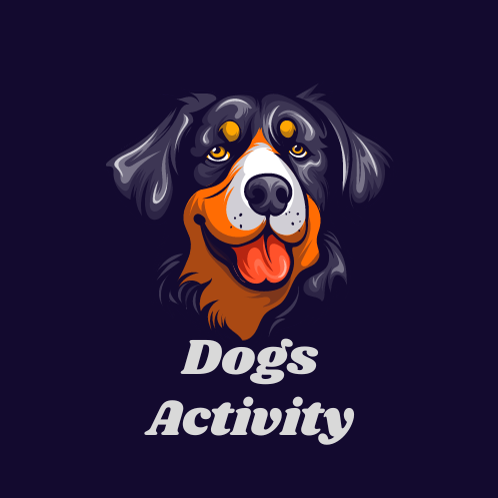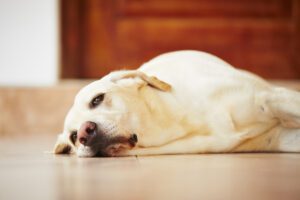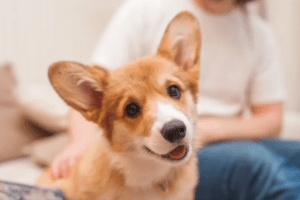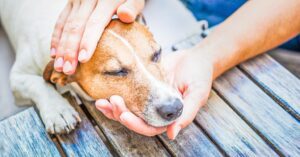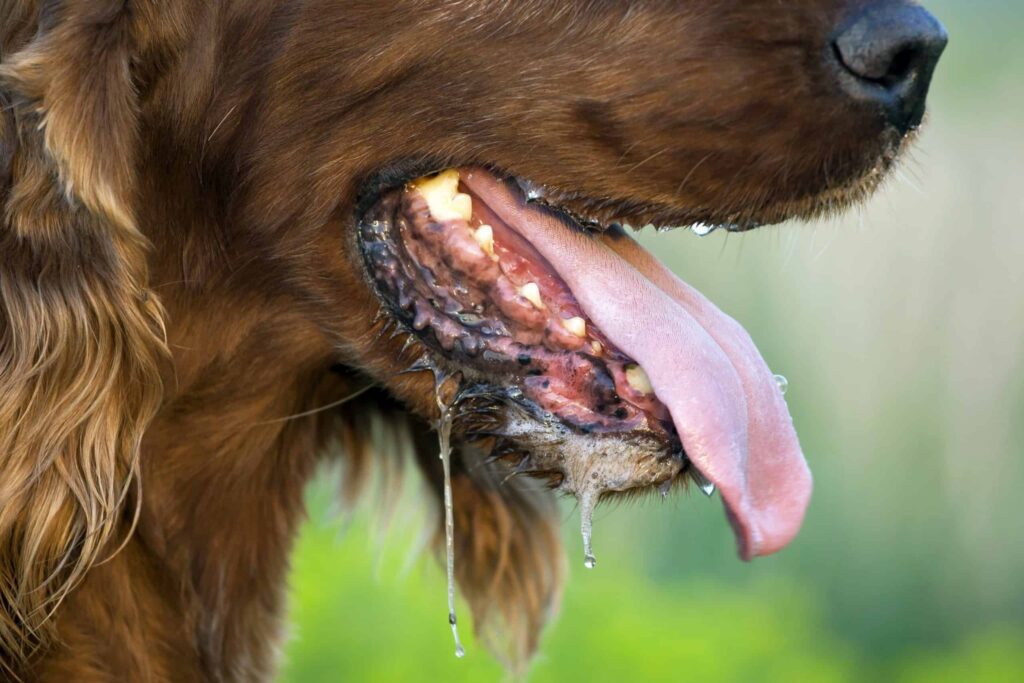
Introduction
Dog owners often find themselves concerned when their canine companions exhibit unusual behaviors, such as dog panting at night. While panting is a normal physiological response in dogs, especially after exercise or in warm temperatures, excessive or unusual panting patterns can signal underlying issues. This article aims to explore the reasons behind why dogs, especially senior ones, may pant at night and how to address this concern effectively.
Why Is My Dog Panting at Night?
- Heat Regulation: Dogs use panting as a means of regulating body temperature. When they’re too warm, especially in hot climates or during physical activity, panting helps them cool down. However, if your dog is panting excessively at night in cooler conditions, it could indicate an issue unrelated to temperature regulation.
- Anxiety or Stress: Dogs, particularly senior ones, may experience anxiety or stress, leading to increased panting, especially at night. Changes in the household, separation anxiety, or fear can trigger this behavior.
- Pain or Discomfort: Dogs may pant as a response to pain or discomfort. Conditions such as arthritis, injuries, dental problems, or internal discomfort can cause nighttime panting.
- Respiratory Issues: Respiratory problems, such as infections, allergies, or even heart disease, might lead to increased panting, especially when lying down.
- Medication Side Effects: Some medications can cause increased panting in dogs as a side effect. If your dog recently started a new medication regimen, it’s worth considering this as a potential cause.
Managing Dog Panting at Night
- Consult a Veterinarian: If your dog, especially a senior one, starts panting excessively at night or shows any signs of distress, it’s crucial to seek advice from a veterinarian. They can conduct a thorough examination to determine the underlying cause.
- Create a Comfortable Sleeping Environment: Ensure your dog’s sleeping area is comfortable, quiet, and free from disruptions. Providing a cozy bed away from drafts and noise can help alleviate stress or anxiety-related panting.
- Regular Exercise and Mental Stimulation: Engage your dog in regular exercise and mental stimulation during the day to help them release excess energy. This can reduce nighttime restlessness and panting.
- Address Potential Health Issues: Follow your veterinarian’s guidance to manage any underlying health conditions that may be causing nighttime panting. This may involve medication, dietary changes, or other treatments tailored to your dog’s specific needs.
- Implement Relaxation Techniques: Utilize calming techniques such as massage, music, or aromatherapy to help relax your dog before bedtime. Establishing a calming bedtime routine can signal to your dog that it’s time to wind down.
- Monitor Temperature and Humidity: Ensure the room where your dog sleeps is at a comfortable temperature. Avoid overheating by providing adequate ventilation or using fans, especially in warmer months.
- Reduce Anxiety Triggers: Identify and minimize potential stressors or triggers that may be causing anxiety in your dog. This could involve gradual desensitization, providing safe spaces, or using pheromone-based calming aids.
Understanding Nighttime Panting in Dogs, Especially Senior Ones
- Senior Dog Health Concerns: As dogs age, they become more susceptible to various health issues. Panting at night could be a symptom of an underlying condition common in older dogs, such as heart disease, respiratory problems, Cushing’s disease, or even cancer. These conditions may cause discomfort, leading to increased panting, especially during rest.
- Pain and Discomfort: Senior dogs often experience joint pain due to arthritis or other musculoskeletal conditions. Pain can exacerbate at night when they’re lying down, resulting in increased panting as a response to discomfort.
- Anxiety and Cognitive Dysfunction: Senior dogs might suffer from anxiety or cognitive dysfunction, commonly referred to as canine cognitive dysfunction (CCD) or doggy dementia. These conditions can cause restlessness, confusion, and increased panting, particularly at night.
- Medication and Side Effects: Older dogs are more likely to be on medications for various health issues. Some medications may cause side effects such as increased panting, and these effects might be more noticeable at night.
- Hormonal Imbalances: Hormonal imbalances, such as thyroid problems or hormonal tumors, can also contribute to increased panting in senior dogs. These imbalances affect the body’s regulatory systems and may disrupt normal panting patterns.
Addressing Nighttime Panting in Senior Dogs
- Regular Veterinary Check-Ups: Regular veterinary visits are crucial for senior dogs to monitor their health. Your veterinarian can conduct tests, including blood work, X-rays, or ultrasounds, to rule out underlying health issues causing nighttime panting.
- Manage Underlying Health Conditions: If your senior dog is diagnosed with a specific health condition, follow the veterinarian’s recommendations for managing it. This may involve medications, dietary changes, or specialized treatments aimed at alleviating symptoms and improving your dog’s comfort.
- Comfortable Sleeping Environment: Ensure your senior dog has a comfortable bed that provides proper support for achy joints. Orthopedic beds designed for older dogs can significantly enhance their sleeping experience and reduce discomfort.
- Pain Management: Discuss pain management options with your veterinarian if arthritis or other painful conditions are contributing to your dog’s nighttime panting. There are various medications, supplements, and therapies available to help manage pain in senior dogs.
- Reduce Anxiety: Create a calm and soothing bedtime routine for your senior dog. Provide a quiet, familiar sleeping area away from disturbances. You can also try using calming aids or pheromone diffusers to alleviate anxiety.
- Moderate Exercise and Mental Stimulation: Engage your senior dog in appropriate exercise and mental stimulation during the day. While older dogs may not need as much physical activity as younger ones, gentle walks and interactive games can help keep them mentally and physically stimulated.
- Proper Nutrition: A well-balanced diet tailored to a senior dog’s nutritional needs is crucial for overall health. Consider senior-specific dog food formulations that address aging-related issues.
- Environmental Adjustments: Make environmental adjustments to accommodate your senior dog’s needs. This might include installing ramps or steps to help them access elevated areas more easily or modifying the living space to reduce potential hazards.
Additional Factors Contributing to Senior Dog Panting at Night:
- Heart Disease: Senior dogs are more prone to heart conditions such as congestive heart failure or valve disease. These conditions can lead to fluid accumulation in the lungs, causing difficulty breathing and increased panting, especially when lying down.
- Heat Intolerance: Older dogs might become more sensitive to temperature changes. Even moderate temperatures that wouldn’t affect them in the past can now cause discomfort, leading to increased panting at night.
- Dental Issues: Dental problems, such as infections or abscesses, can cause significant discomfort and pain for senior dogs. This discomfort might become more pronounced when they lie down, resulting in increased panting.
- Degenerative Cognitive Disorders: As dogs age, they may experience cognitive decline, leading to disorientation, confusion, and changes in behavior, including increased nighttime panting due to anxiety or stress.
Addressing Senior Dog Panting at Night with Additional Strategies:
- Gentle Massage and Stretching: Providing your senior dog with gentle massages or stretches, especially targeting their joints and muscles, can help alleviate discomfort and promote relaxation before bedtime.
- Alternative Therapies: Consider alternative therapies such as acupuncture, chiropractic care, or hydrotherapy, which can be beneficial for managing pain and improving mobility in senior dogs.
- Supplements for Joint Health: Discuss with your veterinarian the use of joint supplements containing glucosamine, chondroitin, or omega-3 fatty acids. These supplements can aid in maintaining joint health and reducing discomfort associated with arthritis.
- Adjust Sleeping Arrangements: Consider elevating your senior dog’s sleeping area if they have difficulty getting up or lying down. Providing a supportive and easily accessible sleeping spot can contribute to their comfort at night.
- Behavioral Training: Implementing positive reinforcement training techniques can help manage behavioral changes or anxiety-related panting in senior dogs. This training can include desensitization exercises and mental stimulation to keep their minds engaged.
- Hydration and Diet Management: Ensure your senior dog has access to fresh water at all times. Monitor their diet to prevent obesity, as excess weight can exacerbate joint pain and respiratory issues, contributing to increased panting.
Conclusion:
Nighttime panting in senior dogs can be indicative of various underlying issues, ranging from health problems to discomfort or anxiety. Given the complexity of potential causes, it’s crucial to consult a veterinarian to accurately diagnose the underlying cause of your senior dog’s panting at night. By addressing any health concerns, providing a comfortable environment, and offering appropriate care and support, you can help improve your senior dog’s quality of life and ensure more restful nights for both your dog and yourself. Regular veterinary care, combined with a loving and supportive environment, is key to managing nighttime panting in senior dogs and ensuring their well-being as they age.
